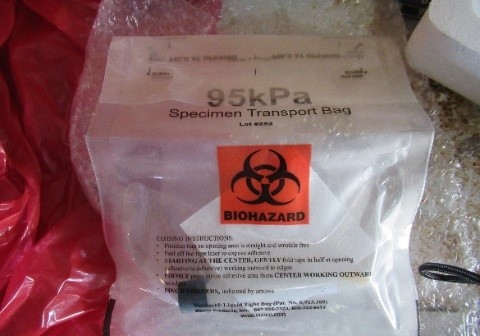CBPAS in Portal found Imperata cylindrical, commonly known as cogon grass, within a shipment of screws from China. This federal noxious weed is an invasive species that take over native plant species and is considered a fire hazard because of the oil produced within the plant. Also within the shipment four types of insects were found. One of the insects was Diestrammena sp., commonly known as the camel or cave cricket. Due to the contamination, the container and contents were returned to China.
During an inspection of a rail container in International Falls, Minnesota, CBPAS intercepted wood boring insects identified as Curculionidae, also known as a bark beetle. The bark beetles are a timber pest that damage and kill host trees. Also found in the container of nails was a Cryptozona bistrialis (Ariophantidae), also known as the Asian land snail. The snails eat mostly carrots, cabbage, cucumbers, and other snails. This is the first time the Asian land snail has been identified in International Falls. This container was safeguarded until it could be returned to China.
CBPAS in Pembina encountered a driver operating a minivan with shipments described as “human blood”. During the inspection, a Styrofoam container with vials of blood was discovered. The shipment was labeled “COVID-19 samples”. After consultation with the Centers for Disease Control and Prevention, the shipment was returned to Canada due to lack of appropriate documentation accompanying the shipment.
“These agriculture seizures show the significant priority Customs and Border Protection places on our agriculture inspection program at our ports of entry,” said Pembina Area Port Director Jason Schmelz. “Preventing harm to domestic crops and vegetation is an important role our Agriculture Specialists provide this country.”
CBP Agriculture Specialists are the front line in the fight against the introduction of harmful insects and diseases into the U.S. They safeguard American agriculture by stopping plant pests and exotic foreign animal diseases that could harm vital agriculture resources at our nation’s borders.
Last modified: 10/27/2020













